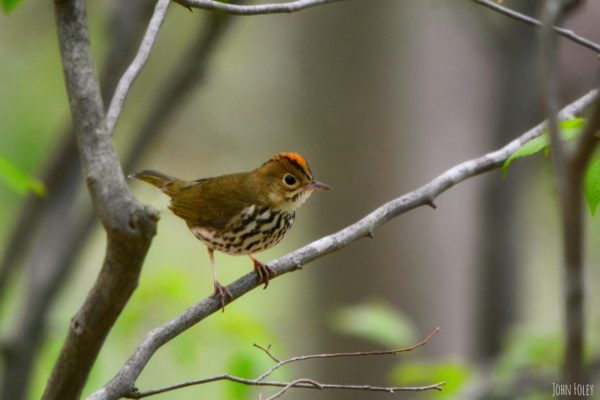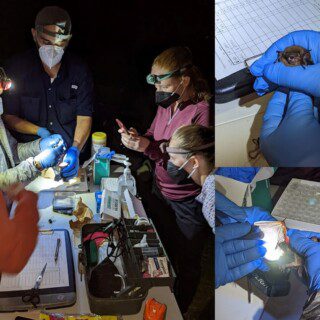
New Publication on Japanese Barberry and its Effects on Birds
Since 2016, Great Hollow has been studying the impacts of the invasive shrub, Japanese barberry, on habitat quality for forest wildlife. One of the first things we discovered is the species composition of insects and other invertebrates, which are a critical food source for wildlife and the foundation of forest food webs, is significantly different in barberry-invaded forest patches than where native plants are still dominant (published here). This could have important ramifications for insectivorous animals higher in the food web that depend on healthy, intact invertebrate communities with which to feed themselves and their young. As such, we began to wonder if in fact these effects from barberry on invertebrates are, in turn, influencing the diet composition of insectivorous animals. In our newest paper, published last week in the Canadian Journal of Zoology, we show that the diet of a common forest songbird, the ovenbird (pictured above), does not simply mirror the changes in the menu of insects available to them in barberry-invaded habitats. By matching stable isotope signatures in the birds’ blood to those in different species of insects, we could determine what the birds are eating and found the birds’ diets to be nearly the same regardless of whether their nesting territory was loaded with Japanese barberry or native plants. This suggests the birds are shifting their foraging behavior to find preferred prey items in response to changes in the relative abundance of different invertebrate groups caused by barberry. From other previous research of ours, there do not appear to be energetic costs associated with any such compensatory shift in foraging effort, so the ovenbirds seem to be easily obtaining their preferred prey in barberry-invaded forests. Overall, this adds to a growing body of evidence that Japanese barberry may not be having major impacts to native birds, despite how invasive and prevalent it is, and conservation resources should perhaps be directed at other invasive plant species.
Access to full journal article: Carter, W.A. and C.L. Seewagen. 2023. Alteration of a temperate forest invertebrate community by invasive Japanese Barberry (Berberis thunbergii) has limited influence on the diet composition of territorial Ovenbirds (Seiurus aurocapilla). Canadian Journal of Zoology doi.org/10.1139/cjz-2023-0058.

 Previous Post
Previous Post Next Post
Next Post